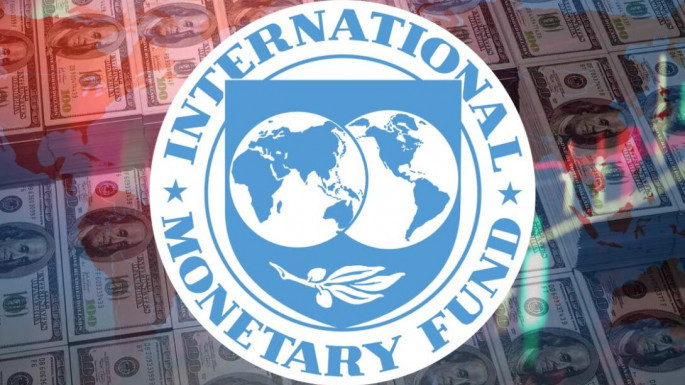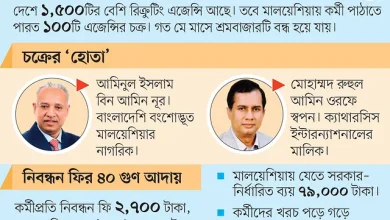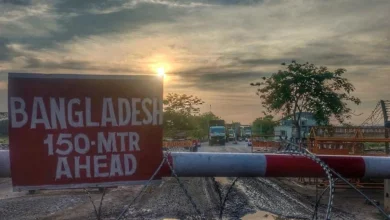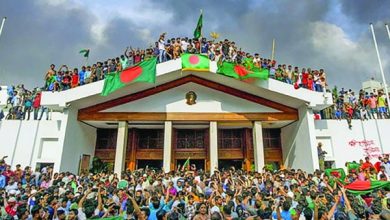IMF board approves 3rd tranche loan; $1.1b expected to be released in 2 days

Bangladesh’s forex reserves set for $2.36b boost within a week
Highlights:
- Agreement for $250m from ADB signed on 10 June
- $500m loan deal agreed with WB on 22 June
- $100m budget support deal with S Korea signed on 24 June
- Deal for $400m from AIIB likely to be signed on 26 June
Despite failing to meet the net international reserves ceiling and revenue target, the International Monetary Fund (IMF) has approved releasing $1.15 billion in the third tranche of a $4.7 billion loan package for Bangladesh.
The approval was confirmed by finance ministry officials late last night, following the multilateral lender’s board meeting. Officials anticipate that the third instalment will be available within a day or two.
With the IMF’s third tranche, Bangladesh will receive over $2.36 billion from four multilateral lenders and one bilateral partner by the end of this month. This is a significant development for a country grappling with dwindling foreign exchange reserves over the past two years.
The IMF was set to release $681 million this month, but according to the staff-level agreement, Bangladesh will now receive about $1,152 million instead, which is 69.16% more than the stipulated amount.

To secure the third tranche, the IMF had set a target for Bangladesh to maintain its net international reserves (NIR) at $14.69 billion by 30 June this year, down from an earlier target of $20.11 billion.
Apart from the IMF loan, agreements for $500 million in budget support with the World Bank, $250 million with the Asian Development Bank, and $100 million with South Korea have already been signed.
Besides, a $400 million budget assistance deal with the China-headquartered Asian Infrastructure Investment Bank (AIIB) is expected on June 26.
Md Mezbaul Haque, spokesperson and executive director of the Bangladesh Bank, expects the IMF loan to be released within the next two days. He also anticipates funds from the ADB, World Bank, and AIIB to arrive by June.
By the end of May of the outgoing financial year, the government signed agreements totaling $816 million with three development partners.
The loans received from development partners in FY24 mark the second time in a single fiscal that the government has received more than $2 billion in budget assistance. The previous record was $2.597 billion in FY22
Boost in reserves
Professor Mustafizur Rahman, distinguished fellow of the Center for Policy Dialogue (CPD), told TBS that the IMF funds will primarily support Bangladesh’s balance of payments, thereby boosting reserves.
He noted that not all funds from the World Bank and AIIB will be added to reserves; some will be allocated to project-based imports.
“For example, out of the $500 million from the World Bank, approximately $200 million might be spent on importing goods for various projects, leaving $300 million for local expenditure,” he added.
According to central bank data, reserves under the BPM6 standard were $19.53 billion as of 19 June, set to increase to nearly $21.89 billion by the end of June with an additional $2.36 billion.
Reserves peaked at over $21.86 billion in December last year but have since declined, starting FY24 at $24.75 billion.
Senior officials from various banks said the continuous decline in reserves over the past two years has strained the ability to cover import costs, leading to delays in payment for many public and private banks.
The budgetary support from multilateral lenders is expected to alleviate this reserve crisis at a critical time, they said.
IMF’s loan package
The IMF has increased the amount of the third tranche at the request of Bangladesh. Bangladesh has also requested the IMF to disburse the fourth tranche of the loan beyond the stipulated amount to deal with the ongoing reserve crisis.
In April, an IMF delegation visited Bangladesh for a two-week review of the loan package, giving approval at the staff level. The IMF team anticipates continued pressure on reserves, easing gradually with the introduction of a new flexible exchange rate.
Ahsan H Mansur, executive director of the Policy Research Institute, told that it was already certain that the third instalment of the IMF would be available. However, economic challenges persist as debt rises without a corresponding increase in reserves.
He said stringent monitoring and no government borrowing through printing money will slightly lower inflation slightly before the next IMF review. Increased exports would stabilise the economy, aiding in obtaining the fourth instalment, he added.
In January last year, Bangladesh signed a $4.7 billion loan agreement with the IMF due to dwindling foreign exchange reserves. The loan is being distributed in seven instalments by 2026. The lender cleared $447.8 million of the first instalment in February last year, and $681 million of the second instalment in December.
Despite lowering net reserve targets in the new staff-level agreement, the IMF has maintained the revenue collection goal unchanged. Reducing vulnerabilities in the banking sector remains a top priority, with efforts to reduce non-performing loans aimed at supporting the economy’s financing needs.
The IMF praised Bangladesh Bank for realigning the exchange rate and adopting a crawling peg regime with a band to enhance exchange rate flexibility and external resilience.
“Fiscal policy should bolster these monetary tightening measures through revenue-focused consolidation. If external and inflationary pressures escalate, authorities should be prepared to tighten policies further,” the IMF recommended.
However, unexpected global financial conditions, high international commodity prices, and domestic vulnerabilities have sustained high inflation and declining foreign reserves.
These challenges continue to strain the economy, complicating macroeconomic conditions.







